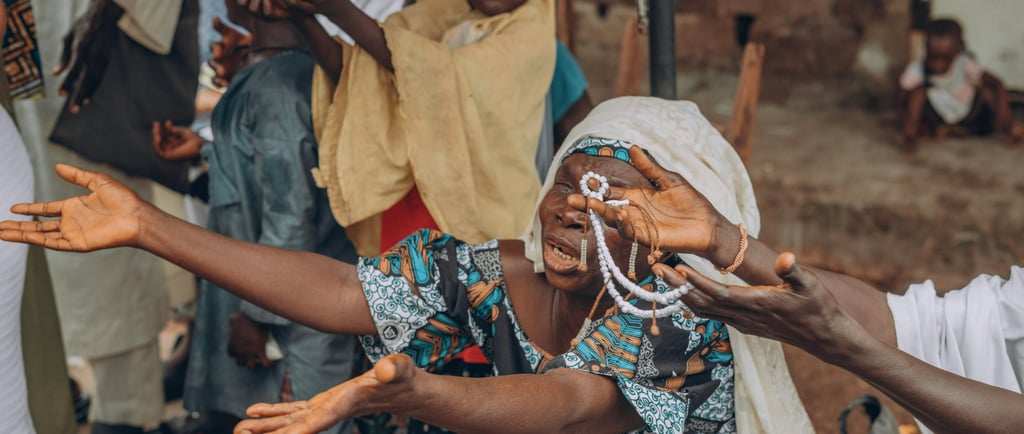Gender-Based Violence Among Refugees and Host Communities in Koboko District, Uganda
Let us discuss Gender-Based Violence Among Refugees and Host Communities in Koboko District, Uganda
DONNEEMART
8/25/20252 min read



Introduction
Gender-based violence (GBV) remains a pervasive issue in humanitarian settings, affecting individuals across age groups, with women and girls being disproportionately impacted. In refugee-hosting areas such as Koboko District, Uganda, the risk of GBV is amplified by social instability, economic hardship, and inadequate legal protection. This study investigates the nature, causes, and impact of GBV among refugees and host communities in Koboko, alongside the existing prevention and response mechanisms.
Research Questions:
What forms of GBV are most prevalent among refugees and host communities in Koboko?
What are the root causes and contributing factors to GBV in this context?
What interventions exist, and how effective are they in preventing and responding to GBV?
Significance:
The study contributes to policy, advocacy, and program development by providing grounded insights into the realities of GBV in refugee-hosting settings. It aims to inform gender-sensitive, community-based strategies for prevention and support.
Methods
A qualitative research approach was utilized, involving in-depth interviews with survivors, community leaders, health workers, and NGO representatives in Koboko District. Data were analyzed thematically, focusing on types of GBV, risk factors, institutional responses, and survivor experiences.
Ethical Considerations: Informed consent was obtained, and confidentiality was strictly maintained, especially for survivors.
Results
Prevalence and Forms of GBV: Interviewees reported a range of GBV forms, including intimate partner violence, early and forced marriages, sexual harassment, and rape. Both refugees and host community members highlighted the normalization of violence within households and public spaces.
Contributing Factors: Key drivers of GBV included poverty, lack of education, displacement-induced stress, and patriarchal norms. Many refugees live in crowded conditions that reduce privacy and heighten risks for women and girls. Economic dependency and power imbalances in relationships further exacerbate the issue.
Institutional Response: While NGOs and government bodies offer some support through shelters, legal aid, and counseling, coverage is limited. Many survivors fear stigma or retaliation, discouraging them from reporting incidents. There is also a lack of trained personnel to handle GBV cases sensitively and effectively.
Community Dynamics: Some traditional leaders and religious figures play supportive roles in mediation and awareness campaigns. However, others reinforce harmful norms that perpetuate silence and victim-blaming.
Discussion
Findings echo global research highlighting GBV as a critical concern in crisis-affected populations. Structural challenges such as poverty, cultural beliefs, and insufficient legal enforcement hinder progress. Interventions should prioritize survivor-centered approaches, including trauma-informed care, economic empowerment programs, and legal reform.
Community engagement is vital in transforming attitudes and behaviors that normalize violence. Training for health workers, law enforcement, and community leaders can strengthen the response system. The integration of GBV services into primary healthcare and education systems can also enhance accessibility and sustainability.
Limitations: This study focused on a small geographical area and a limited number of participants. Broader quantitative research is needed to assess prevalence and trends.
Conclusion
GBV in Koboko District is a deeply rooted issue exacerbated by displacement and socio-economic instability. While some support mechanisms exist, significant gaps remain in prevention, protection, and prosecution. Holistic, community-based interventions that challenge harmful norms and empower survivors are essential for meaningful change.
Abstract
This study explores gender-based violence (GBV) among refugees and host communities in Koboko District, Uganda. Through qualitative interviews, it identifies intimate partner violence, early marriage, and sexual harassment as common forms of GBV, driven by poverty, displacement, and patriarchal norms. Although some NGO and government responses are in place, survivors face stigma, limited resources, and weak institutional support. The study calls for integrated, survivor-focused approaches, including community education, legal reform, and economic empowerment initiatives to address GBV effectively.
Service
Empowering communities through faith and innovation.
Connect
Subscribe for our newsletter
info@donneemart.online
+256-774-143-794
© 2025. All rights reserved.
